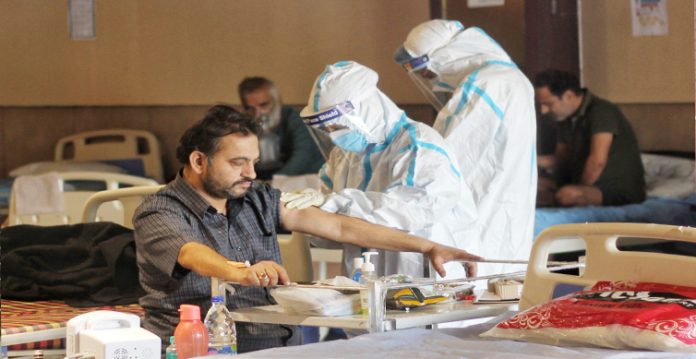India has so far reported approximately cases of 8,848 mucormycosis or black fungus, one of the rapidly spreading infections observed in those recovering from Covid-19.
Taking note of the increasing numbers, the Central government has emphasized upon expediting the allocation of vials of Amphotericin-B, a key drug to treat raging mucormycosis.
In this direction, the Union minister of chemicals and fertilizers D.V. Sadananda Gowda has announced an allocation of 23,680 additional vials of Amphotericin-B.
ALSO READ: Northeast reports first death due to mucormycosis
The minister also informed that the allocation has been made based on a total number of patients which is approximately 8,848 across the country.
Gujarat (5,800) and Maharashtra (5,090) have been allocated the maximum number of the additional Amphotericin-B vials followed by Andhra Pradesh (2,310), Madhya Pradesh (1,830), Rajasthan (1,780), Karnataka (1,270).
Gujarat has reported a maximum of 2,281 mucormycosis cases followed by Maharashtra (2,000), Andhra Pradesh (910), Madhya Pradesh (720) Rajasthan (700), Karnataka (5,00), Haryana (250), Delhi (197), Punjab (95), Chhattisgarh (87), Bihar (56), Tamil Nadu (40), Kerala (36), Jharkhand (27), Odisha (15), Goa (12) and Chandigarh (8).
ALSO READ: ‘Black Fungus’ claims 100 in Maharashtra: Health Minister
Mucormycosis is a serious but rare fungal infection caused by a group of molds called micromycetes that has been developing in Covid-19 patients. The fungal disease is commonly being observed in patients who were given steroids for a long time, who have been hospitalized for a long time, were on oxygen support or ventilator, faced poor hospital hygiene, or those who have been taking medication for other illnesses such as diabetes.
If not treated on time, the black fungus infection can turn fatal. The Covid medications can leave the body weak and low on immunity. They can also escalate the blood sugar levels in both diabetics and non-diabetic Covid-19 patients.
SOURCE-IANS







